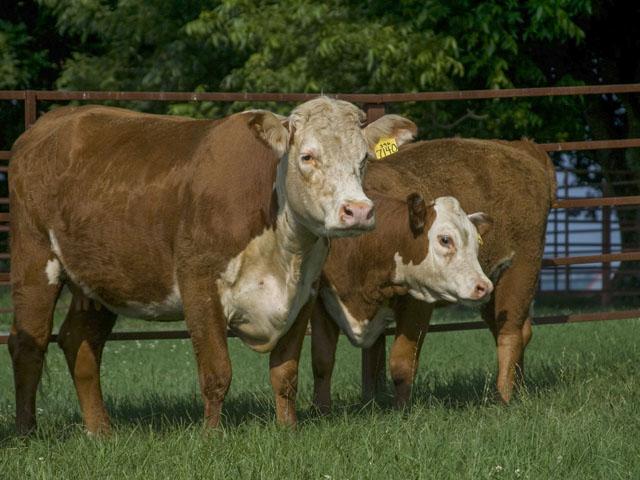Ask the Vet
Anaplasmosis Endemic in Some Areas
READER QUESTION:
We have a cow that checked PCR positive for anaplasmosis. We treated her with antibiotics, and she appears to be fully recovered. After she weans her calf, should we sell her? We don't know if she's likely to contract anaplasmosis again, or if she poses a threat to her herd mates.
DR. MCMILLAN'S ANSWER:
This cow is almost certainly a carrier, and she will not likely ever show signs of the disease. But, as a carrier, she is a definite risk to other cattle.
I am not sure whether anaplasmosis is considered endemic in your area. If it is, then you need a different plan possibly with ongoing treatment. That is a decision you will have to make with your herd veterinarian. I also do not know how many cows you own or if you are "fence to fence" with other herds. This too can affect how you handle anaplasmosis. You can probably tell that what I'm saying is there is no across-the-board best answer for how to handle anaplasmosis.
I would advise checking your entire herd to determine their status. That is step one. Other standard recommendations that will not change include the use of a clean needle with each injection, as well as the cleaning of all surgical instruments (tattoo pliers, castration tools, dehorners) between each use. Anaplasmosis is a blood-borne disease, which is why it's so important to take these steps when working cattle to avoid spreading it within your herd.
This is also why tick and biting-fly control is important. Both of these pests can be significant sources of anaplasmosis transmission. But because ticks are a biological vector, they are an especially important mode of transmission. So make sure your management is on target for these pests to avoid additional problems.
Lastly, be very cautious when introducing new cattle to the herd. While your cows may be carriers and show little ill effect from the condition, they could infect a new herd member, causing serious illness that could lead to the loss of that animal.
As you can see, anaplasmosis is a serious illness and one that has to be handled with your herd veterinarian as a key part of your management team.
(c) Copyright 2021 DTN, LLC. All rights reserved.
P[L1] D[0x0] M[300x250] OOP[F] ADUNIT[] T[]





